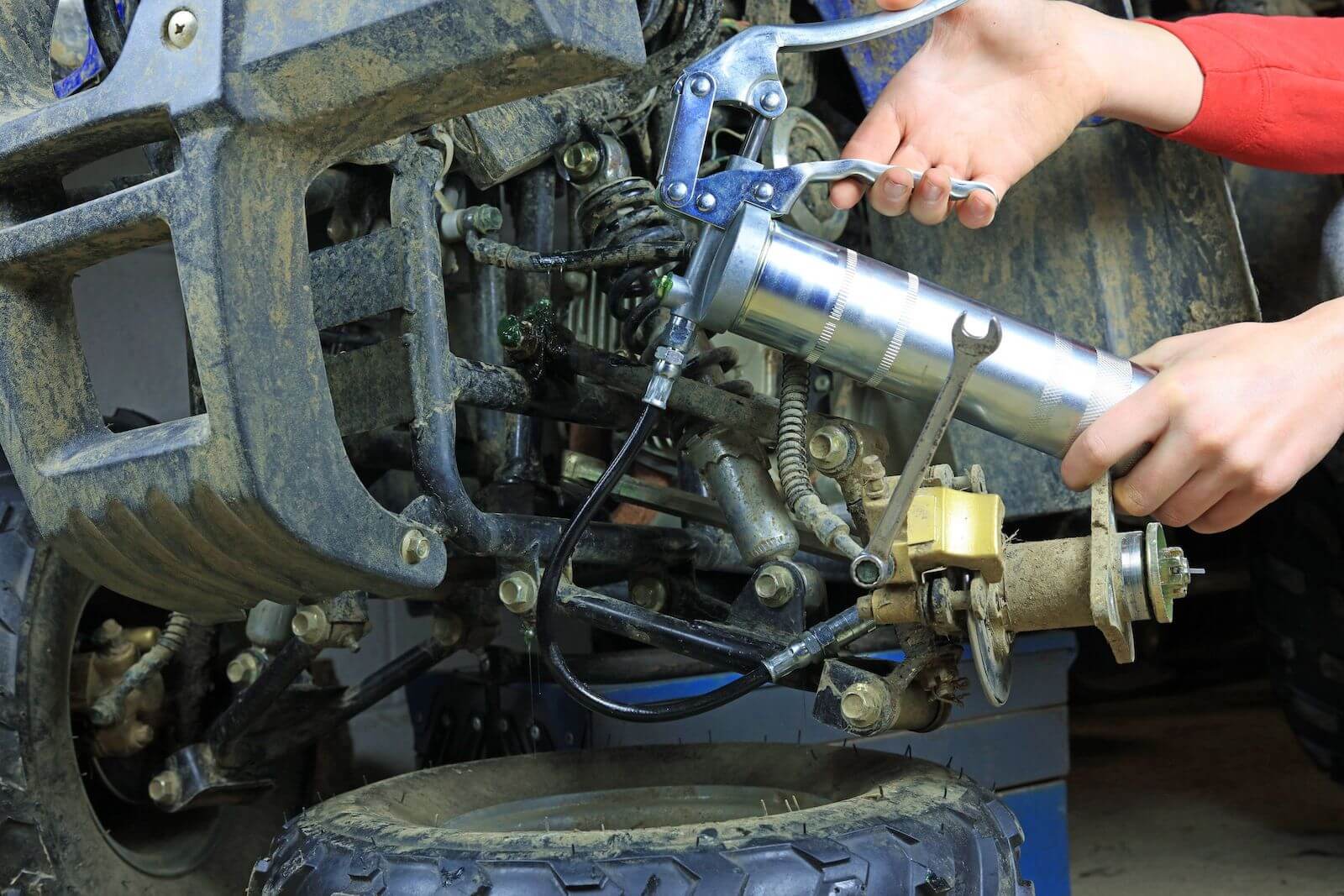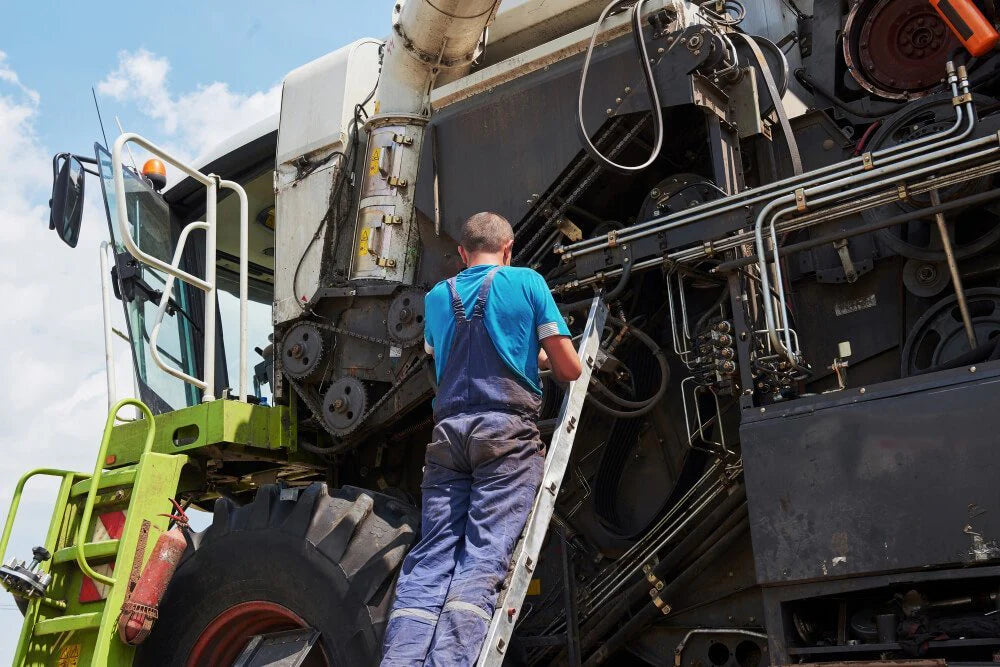Do expensive oil changes have you considering whether you can change your own oil or if you can skip an oil change? First -Can you skip an oil change? NO. NO. NO. If you think changing the oil is expensive, try having an engine replaced (Hint: It could cost over $5,000 or more).
Oil changes are necessary, but you may be able to change your oil if you are looking to save a couple of dollars. First Let’s look at the cost of changing your oil.
Cost of a Professional Oil Change
There are a lot of different factors that go into the cost of oil changes.
- Labor. The cost of the professional changing the oil
- Oil. The cost of the new engine oil
- Filter. Cost of a new engine oil filter
- Mark up. Every oil change location has a general markup to pay the bills of the business and generate a profit
In total, you can expect to pay between $30 and $150 for an oil change. The range is so wide because it depends greatly on the vehicle, oil volume, quality of the oil, and the quality of the replacement filter.

In general, higher-end vehicles, trucks, and SUVs cost more because they require more oil and sometimes higher specification oil. You also “get what you pay for”. The higher the price of the filter and oil the better the quality (this is generally the case but beware of swindlers).
How Often do you Need to Change the Oil?
The frequency of oil changes will weigh heavily on the cost of yearly oil changes. Check out your owner’s manual to find out how often you should be changing your oil. The owner’s manual can typically be found in the glove box or center console.

Look under “lubrication” or “General Maintenance” to find out how often your vehicle needs an oil change. Oil change frequency is often given in miles. So, look for a recommendation like every 5,000 or 10,000 miles. If it says every 5,000 miles and you drive 20,000 miles per year your total yearly cost of oil changes is between $120 and $600.
Save $600 per year on Oil Changes? Sign me UP!
HOLD UP, before you send the oil change place a “Dear John” letter we better run the numbers. Even if you change the oil yourself you are going to need to buy engine oil and a new engine oil filter.
Find out what your car or truck requires for oil and what filter you need. If you have had someone change your oil in the past, ask them what oil and filter they use. Once you know the oil and filter type, find out how much they cost. A local car parts store or big box store will most likely have the oil and filter you need.
Here are some other things you need to consider
- Do you have the tools needed to change oil?
- Do you have the skill set to change your oil? (be honest with yourself)
- What are you going to do with the old engine oil.? (It can’t go down the drain, so check with your local waste management service to find out what needs to be done with used engine oil)
- Do you have time, and will you make time when it needs to be done?
What Skills do you Need to Change the Oil?
If you are going to change your oil, you are going to need some mechanical skills. Here is what you can expect to do:
- Drive your car up on ramps or a lift if your car sits too low to the ground to get under. THIS MUST BE DONE CORRECTLY FOR SAFETY.
- You may have to remove skid plates, which can be heavy. Typically skid plates are attached by 4-6 bolts. On some vehicles, you may have to remove two skid plates.
- You must be able to remove the engine oil plug.
- You must be able to remove the old oil filter and install the new filter.
- You must be able to lift and reinstall the skid plates.
In general, you should have used a wrench before (lefty loosey, righty tighty). You do not want to cross-thread any bolts you remove or strip out any bolts you remove/tighten. The oil change process is simple so we do feel that most people can get it done correctly, but it may be recommended to have a little experience with wrenches before you tackle the job.
Tools you Need to Change the Oil
You have the talent and the time, but you are not sure what tools you need. A garbage bag and pliers aren’t going to cut it, but the good news is that you only have to buy the tools once and then you should be set.

Check the owner’s manual for your car and see if it tells you what wrenches you will need, if not, try Google. It knows everything. In general, here is what you need
- A standard socket set (has sizes like 9/16 and 3/4)
- A metric socket set (sizes like 10mm, and 12mm)
- Both metric and standard socket sets if you are unsure of the sizes you’ll need
- A rachet drive, is included in some socket sets
- A filter wrench. Sometimes you can spin them off by hand, but most often you will need an assist from a filter wrench
- A bucket to catch the oil you drain out
- Ramps, if your car is low to the ground (BE careful, follow all safety procedures when using ramps/lifts)
- Oil dry and rags. Oil dry to catch any spills and rags to clean your hands.
- OIL, check the manual for specification
- FILTER, check the manual for specifications or ask a local parts supplier
Do I Need Oil Additives?
Specialized oil additives may be recommended by professionals to help get the longest lifespan out of your vehicle.
Oil additives like AirTec Micro Ceramic Oil greatly reduce wear and reduce friction to further increase fuel efficiency and performance. An additive like this can be used in all vehicles and should be used at least once a year to get extra wear protection and keep your car running like new.
It is important to know that additives do not affect how often you must change your oil, but they can greatly increase how long your engine lasts.
Other additives can stop or prevent the oil leaks that can stain your garage floor. If you have this issue, we recommend AirTec Oil Stop, a German-made additive that keeps seals and gaskets in healthy condition and leak-free.
The amazing thing with AirTec Oil Stop is that it can even fix a leak after it has started! Therefore, if you have an oil leak it is a great idea to use a product like AirTec Oil Stop to stop leaks and keep that oil in your engine.
That’s all folks!
Well, how are you feeling? Up to the job? We know you can do it – just prepare and know what to expect. And if you’re not quite yet ready to tackle the job that’s ok, let a professional handle it a few more times until you’re ready. Most importantly, STAY SAFE and keep on smiling.






